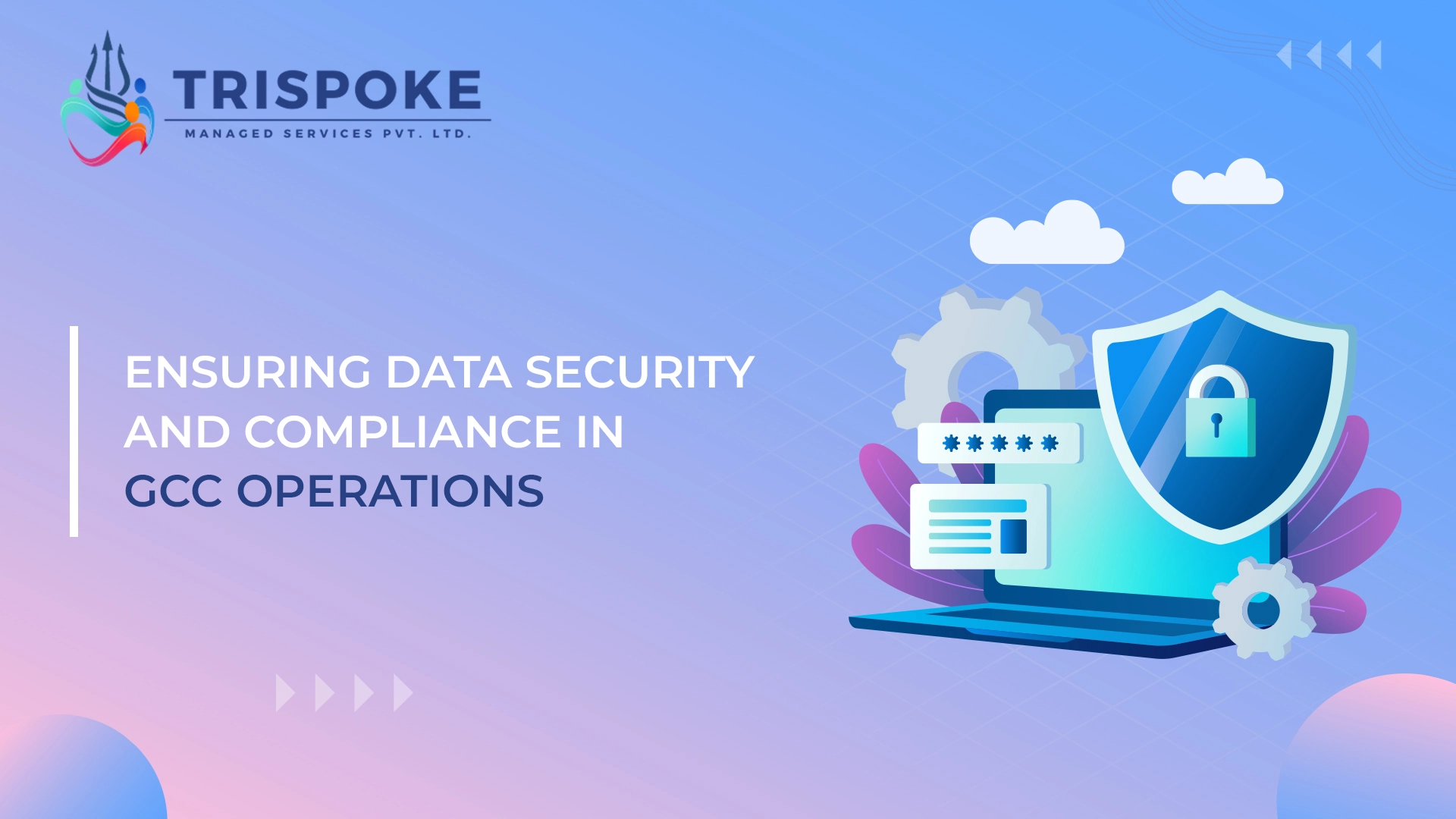Global Competency Centers (GCCs) handle critical business functions, making data security and compliance top priorities. As GCCs like Trispoke operate in a global environment, they face challenges such as varying regulatory requirements, cross-border data transfers, and evolving cybersecurity threats. Here are key strategies for ensuring robust data security and compliance in GCC operations.
1. Establish Strong Governance Policies
A well-defined governance framework is essential for managing data security and compliance. Develop policies that address data handling, access controls, and risk management. Ensure these policies align with international standards such as GDPR, CCPA, or local regulations applicable to your operations.
2. Implement Advanced Security Measures
Adopt advanced cybersecurity solutions to protect sensitive data. This includes the use of firewalls, intrusion detection systems, encryption technologies, and multi-factor authentication methods. Regularly update software and conduct security audits to identify vulnerabilities and mitigate risks.
3. Train Employees on Cybersecurity
Establish a strong incident response plan to proactively address potential data breaches. Regularly train employees on cybersecurity best practices, such as recognizing phishing attempts, safeguarding credentials, and adhering to company protocols.
Trispoke, for instance, conducts ongoing cybersecurity workshops to ensure its workforce remains vigilant against threats.
4. Monitor and Manage Access Controls
Restrict data access to authorized personnel only. Implement role-based access controls (RBAC) to ensure employees have access solely to the information necessary for their roles. Frequently assess and update permissions to align with evolving roles.
5. Leverage Data Protection Tools
Utilize tools like data loss prevention (DLP) software and cloud security solutions to monitor and protect sensitive data. These tools can detect potential breaches and prevent unauthorized data transfers.
6. Ensure Cross-Border Data Compliance
When operating across multiple regions, ensure compliance with local data protection laws. Collaborate with legal and compliance teams to navigate regulations such as GDPR for the European Union or APPI for Japan.
7. Develop an Incident Response Plan
Establish a strong incident response plan to proactively address potential data breaches. This plan should outline steps for detecting, containing, and mitigating breaches while communicating effectively with stakeholders.
8. Conduct Regular Compliance Audits
Periodic audits help ensure adherence to data security and compliance standards. Use third-party audits or internal reviews to evaluate systems, identify gaps, and implement necessary improvements.
Conclusion
Data security and compliance are vital for the success of GCC operations. By implementing comprehensive policies, leveraging advanced technologies, and fostering a culture of awareness, GCCs like Trispoke can safeguard sensitive information and maintain regulatory compliance. These measures not only protect the organization but also build trust with clients and partners in today’s increasingly digital and interconnected world.

